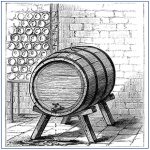DMCA Takedown Procedure
Another very important part of copyright law for video game developers, both using it as a sword and a shield, is the Digital Millennium Copyright. This is an act from the late 90’s that deals with digital copyright. For game developers, the most important part is Section 512 which deals with DMCA takedowns and safe harbor.
Video Game Law 101 with Zachary Strebeck
Zachary Strebeck is a California game lawyer who represents clients in the video game, tabletop game, and mobile app industries. In addition to his solo law practice, Zachary serves as Of Counsel to The McArthur Law Firm, where he counsels clients in business formation and fundraising issues, game development contracts, and the protection and enforcement of intellectual property.In this CLE class video Zachary Strebeck discusses DMCA Takedown Procedure.
You can watch the complete Video Game Law CLE class here:
Video Game Law CLE
If a game developer has content that users are creating, that makes them an internet service provider. Say one of your users is creating content that’s infringing on someone’s copyright, you don’t want to be held liable for that infringement, though technically you’re hosting it on your servers. As long as you comply with these takedown procedures, you can avoid liability for the user’s actions.
DMCA Takedown Notice must substantially comply with the following:
- Contact information
- The name of the infringed work
- Link to the infringed work
- A statement that client has a good faith belief that use is not authorized
- A statement that the information in the notification is accurate
- A statement that, under penalty of perjury, you are authorized to act for the copyright holder
- A signature
DMCA Timline
- User posts infringing content
- You discover infringing content
- Send ISP a compliant takedown notice
- ISP disables access to content, notifies alleged infringer
- Alleged infringer files counter notice
- ISP notifies you
- You have between 10 to 14 days to file a lawsuit against the alleged infringer, or access to the content will resume








